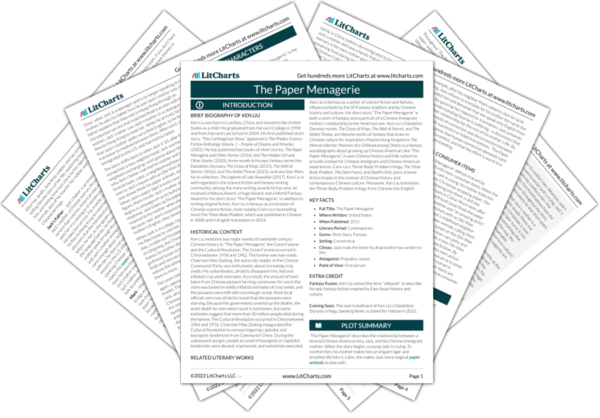AI ToolsNew
Tools to make learning and teaching easier
|
Previous
Summary
|
The Paper Menagerie Summary & Analysis |
Next
Themes
|


Upgrade to unlock the analysis and theme tracking for all of The Paper MenagerieThe Paper Menagerie!
Get LitCharts A+